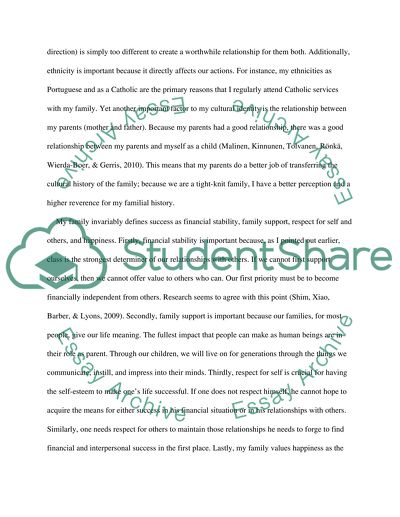Cite this document
(“Cultural Identity Paper Essay Example | Topics and Well Written Essays - 1250 words”, n.d.)
Retrieved from https://studentshare.org/sociology/1408115-cultural-identity-paper
Retrieved from https://studentshare.org/sociology/1408115-cultural-identity-paper
(Cultural Identity Paper Essay Example | Topics and Well Written Essays - 1250 Words)
https://studentshare.org/sociology/1408115-cultural-identity-paper.
https://studentshare.org/sociology/1408115-cultural-identity-paper.
“Cultural Identity Paper Essay Example | Topics and Well Written Essays - 1250 Words”, n.d. https://studentshare.org/sociology/1408115-cultural-identity-paper.


